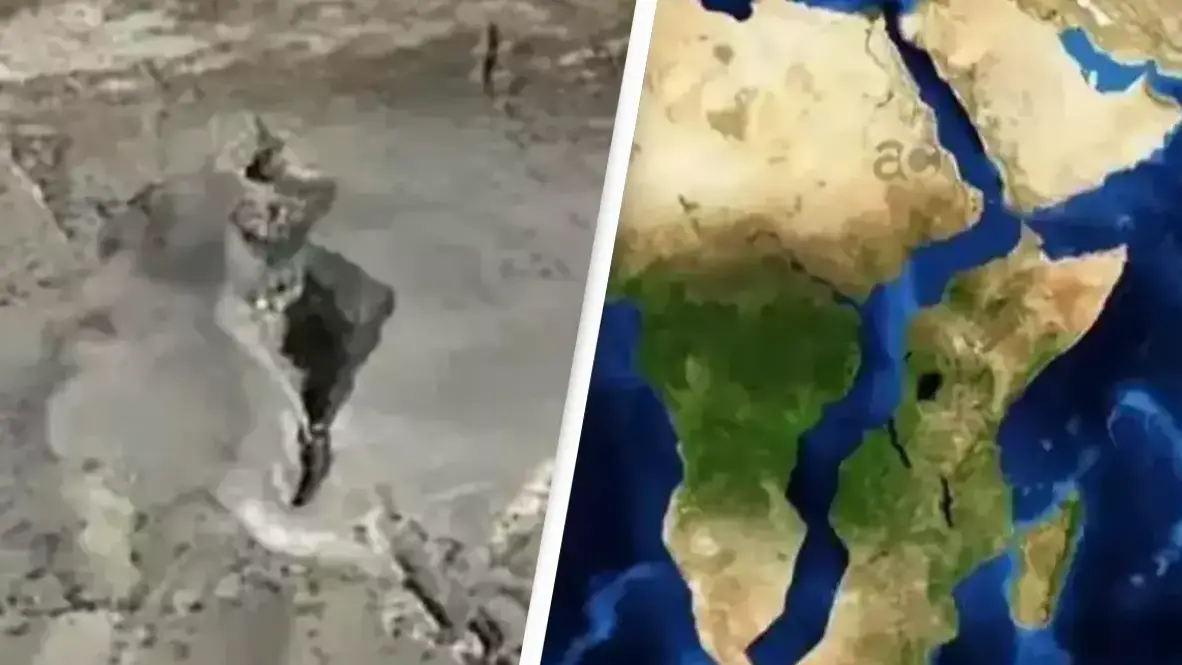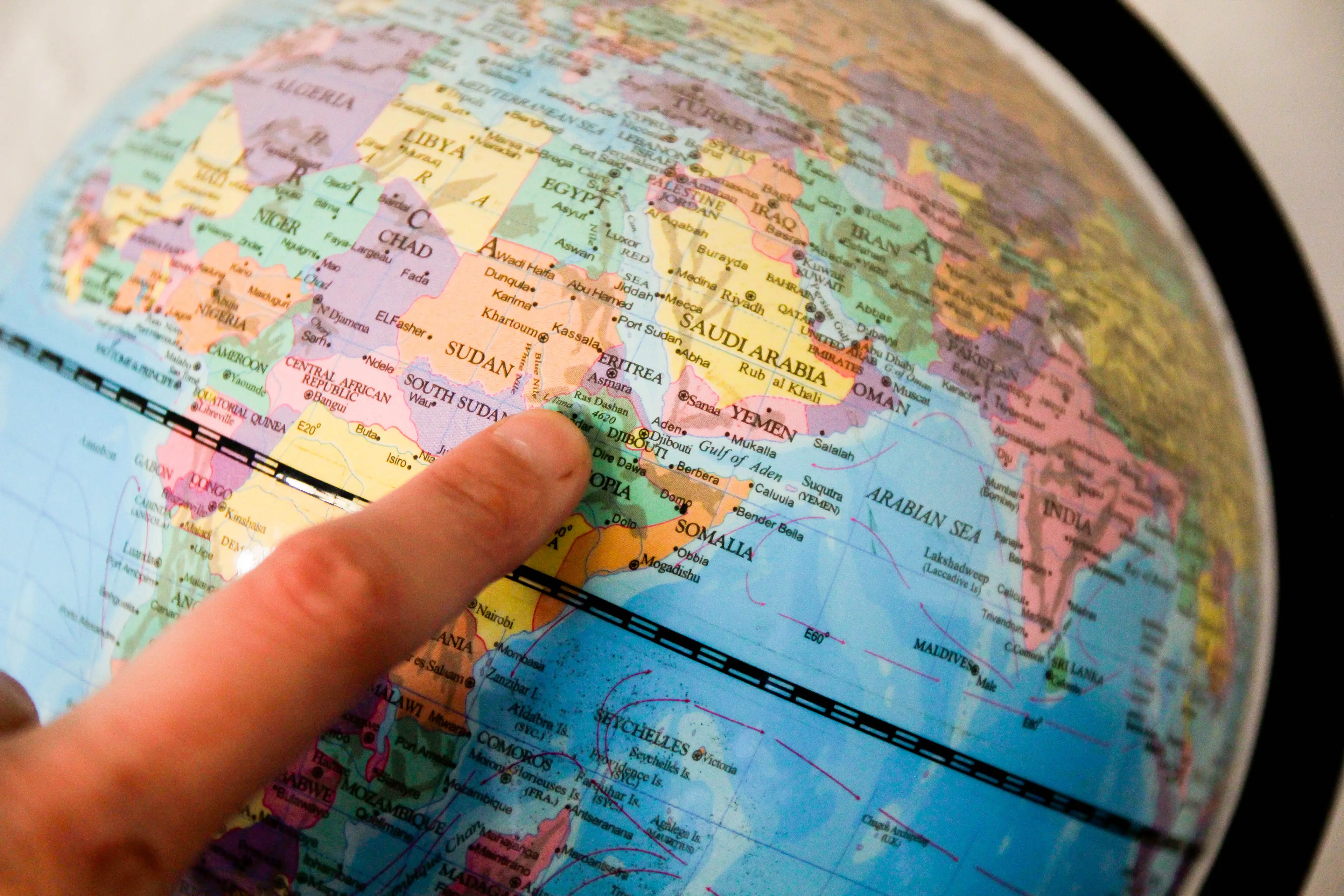
A marine geophysicist has explained what will happen as Earth slowly begins to form a new ocean.
Thanks to globes, maps, books and posters, we're pretty familiar with what the Earth looks like now, with its five oceans, seven continents and the recognizable lay of the land.
But our planet hasn't always looked this way, and the slow emergence of a sixth ocean proves it won't stay this way, either.

Advert
The new body of water has been confirmed by scientists to be appearing in the middle of the African continent, which is beginning to split in half. Where countries like Uganda and Zambia are currently landlocked, at some point in the future they could potentially have their own coastlines.
The change comes as a result of the movement of tectonic plates; the huge slabs of solid rock that make up the Earth's crust and upper mantle, otherwise known as the lithosphere. Tectonic plates are constantly on the move, though the movements aren't visible to the naked eye.
The African, Arabian and Somali tectonic plates border one another, but for the past 30 million years, both the Arabian plate and the Somali plate have been slowly moving away from the African plate, resulting in what is known as the East African Rift.
Speaking about the findings last year, per The Economic Times, Christopher Moore, a doctorate student at the University of Leeds in the UK, said: "This is the only place on Earth where you can study how a continental rift becomes an oceanic rift."

Considering it's taken 30 million years for a noticeable crack to open up, it's safe to say residents of Uganda or Zambia won't be enjoying their own coastlines any time soon.
But the change isn't going to stop - as indicated by Ken Macdonald, a marine geophysicist and a professor based at the University of California.
He explained: "With GPS measurements, you can measure rates of movement down to a few millimetres per year.
"As we get more and more measurements from GPS, we can get a much greater sense of what’s going on.”
Looking ahead, Macdonald was also able to predict what the world might look like when those millions of years pass, and the ocean finally opens up.
He said: "The Gulf of Aden and the Red Sea will flood in over the Afar region and into the East African Rift Valley and become a new ocean, and that part of East Africa will become its own separate small continent."